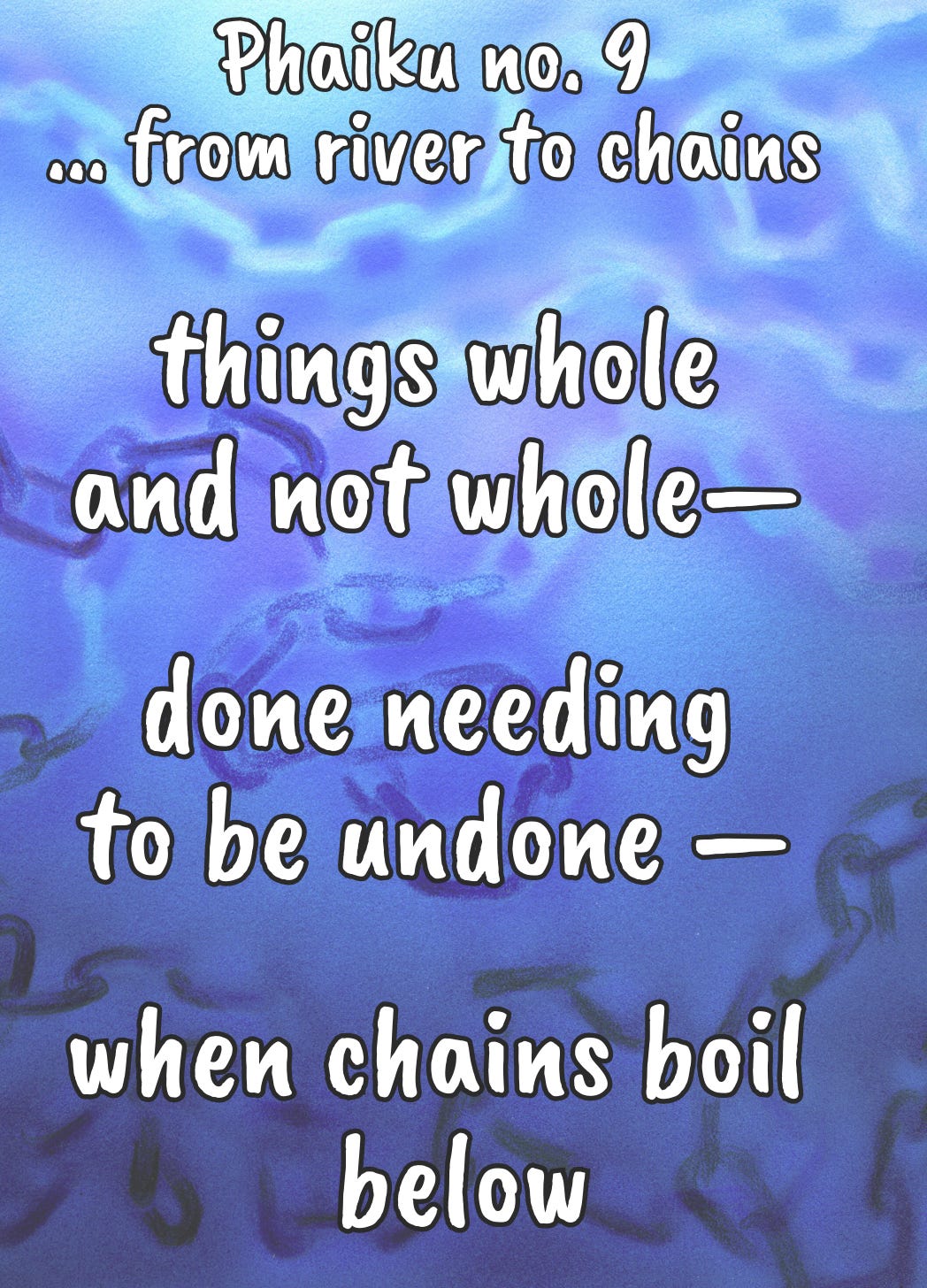Phaiku No. 9
Speaking of change ...
When I wake, and the first thought falls out of my head roaring instead of purring—I Iisten. “Why is change so difficult, even when it’s the thing we most desperately want?”
I suppose on one level, I know one side of that answer. My dissertation, in part, addressed, how ‘habit’ becomes hard-wired … yadda, yadda, and ta-da.
This morning my thoughts bent toward philosophy—part Heraclitus, part Nietzsche—and so today’s phaiku found its voice.
If you are unfamiliar with ’phaiku’ let me just say it is a 17-syllable poetic form (most of the time)—inspired by haiku’s brevity but free to wander into philosophy, science, and wonder. Short in syllables, vast in scope. Learn more in Introducing: PHAIKU.
Heraclitus spoke of rivers; Nietzsche spoke of chains: “The individual has always had to struggle to keep from being overwhelmed by the tribe.”
That struggle simmers, and when the chains boil below… a phaiku emerges.
Change—the breaking of chains.
Phaiku No. 9: … from river to chains
The chains may boil—but so does the will to become.
The raw version … I think it has more mileage and I am certain to dress it up in the future, but sometimes … raw needs to be … raw.
Phaiku never steps in the same form twice. It keeps the brevity of haiku, but shifts shape with the current of thought.
How do you think about change … approach it?
It’s not easy … but easy isn’t always right.
Regardless, we’re in this world together. Take it easy when you need to. Take it steady when you can.
Until next time—be well, think well, and stay well.
~jlynn








Change is the one certainty in life, I think someone said. But for a certainty, it feels often uncomfortable to me. I think my approach is first to accept it, it is a non-negotiable. Then I try to navigate it in my own way, thinking about it, or writing about it so there is the comforting sense of my own perception in it, a link to the past and a sense of continuity. But ultimately change is destabilising and it takes courage to look at it and faith in the future and yourself and others to embrace it without the security of the present. This discomfort is important for growth though and it isn't a flaw, more like an invitation to make new discoveries.
Thanks for this post, it really made me think.
Oh, I love this!